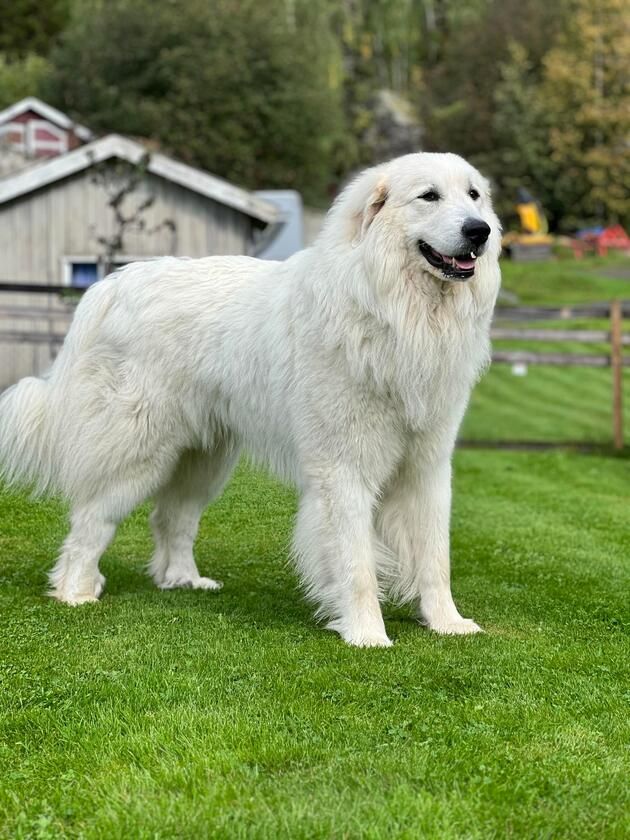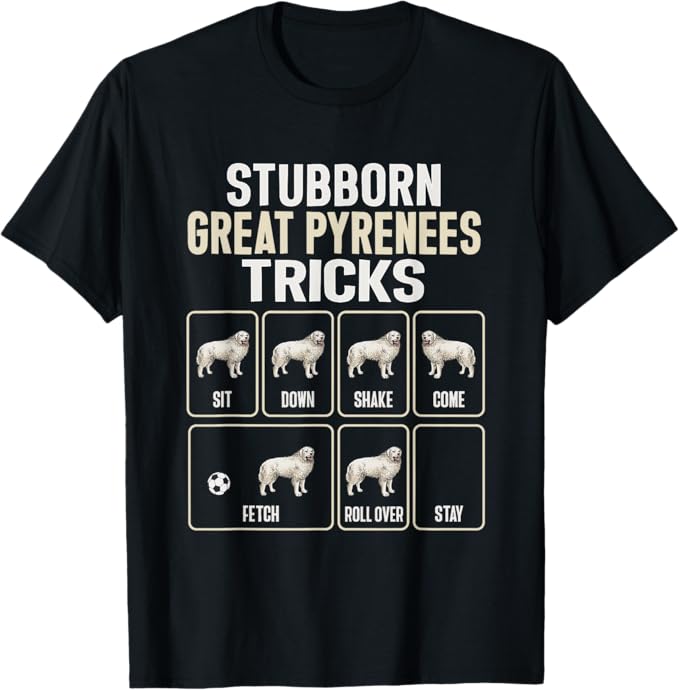The Great Pyrenees is a breed that combines beauty, intelligence, and unwavering loyalty. Their ability to seamlessly transition from protective guardians to gentle companions highlights their versatility and enduring appeal. The Great Pyrenees excel as livestock guardians, protecting sheep, goats, and other animals from predators. Their vigilance and protective instincts remain invaluable on farms and ranches. Additionally, their reputation as able protectors and “gentle giants” makes them well-suited as family companions.
Ancient History
The history of the Great Pyrenees is both intriguing and ancient. This breed traces its origins back to the mountains of Asia Minor, where its ancestors were large, white dogs instrumental in protecting livestock from predators. Over time, these dogs migrated westward alongside their shepherds, eventually finding a home in the Pyrenees Mountains, located between France and Spain.
In the Pyrenees, these dogs became known as “Patous” and were highly esteemed for their ability to safeguard sheep and other livestock from wolves and bears. Their thick, white coats allowed them to seamlessly blend into the snowy surroundings, enhancing their effectiveness as protectors.
The Great Pyrenees also captured the admiration of European royalty. In 1665, King Louis XIV of France reportedly designated them as the Royal Dog of France. Their role as flock guardians persisted for centuries, with a reputation for independence and vigilance. In the modern age, the breed was standardized and officially recognized by kennel clubs in the early 20th century. The Great Pyrenees Club of America was founded in 1931, dedicated to preserving the breed’s lineage and promoting its attributes as both a working dog and a cherished companion.
Breed Characteristics
The Great Pyrenees, also known as the Pyrenean Mountain Dog, is a breed that embodies both grace and strength. These majestic dogs are instantly recognizable by their thick, weather-resistant double coat, typically white with occasional markings of grey, badger, reddish brown, or tan. Their eyes are expressive and almond-shaped, radiating intelligence and a calm demeanor. They possess a sturdy, well-proportioned build, enabling them to perform their duties efficiently.
Distinguishing Characteristics:
- Coat and Size: The Great Pyrenees’ dense, double coat not only provides insulation against harsh weather but also adds to their imposing presence. Adult males can weigh between 100-160 pounds, while females typically weigh 85-115 pounds.
- Temperament: Despite their formidable size, they are known for their gentle and affectionate nature, especially with children. They are vigilant and protective, making them excellent family guardians.
- Intelligence and Independence: They exhibit strong independent thinking and problem-solving abilities. This independence, combined with their intelligence, means they require thoughtful training and socialization.

Role as Working Dogs: The Great Pyrenees has a long history as a working dog, particularly in mountainous regions where their strength and resilience are invaluable.
- Livestock Guardian: Their primary role has been to protect sheep and other livestock from predators such as wolves and bears. They are instinctively protective and fearless, often patrolling their territory and keeping a watchful eye over their charges.
- Companionship and Therapy: In addition to their guarding duties, they are also excellent companions and therapy dogs. Their calm and patient nature makes them ideal for providing comfort and support to those in need.
- Search and Rescue: Their keen sense of smell and strong build make them suitable for search and rescue operations in rugged terrains, where their stamina and determination can be life-saving.
The Great Pyrenees Today
The Great Pyrenees has adapted well to modern times while retaining its historical traits and roles. Here’s how they contribute today:
Livestock Guardian:
- Primary Role: They continue to excel as livestock guardians, protecting sheep, goats, and other animals from predators. Their vigilance and protective instincts remain invaluable on farms and ranches.
Family Companions:
- Gentle Giants: Known for their calm and affectionate nature, Great Pyrenees make excellent family pets. They are particularly good with children, providing both companionship and protection.
- Guardians: Their innate protective instincts make them effective home guardians. They are naturally alert and will bark to signal potential threats, adding a layer of security.
Therapy and Service Dogs:
- Calming Presence: Their gentle and patient demeanor makes them suitable for therapy work. They provide comfort and support to people in hospitals, nursing homes, and other care settings.
- Service Roles: While not as common, some Great Pyrenees have been trained as service dogs, helping individuals with specific needs.
Search and Rescue:
- Search and Rescue Teams: Their strength, endurance, and keen sense of smell make them valuable members of search and rescue teams, especially in rugged terrains where their stamina is an asset.
Public Awareness and Conservation:
- Educational Ambassadors: They often serve as ambassadors for public awareness campaigns about the importance of livestock guardian dogs and the role of working breeds in agriculture.
- Conservation Efforts: In some regions, they are used in conservation programs to protect livestock from predators, reducing the need for lethal control measures and promoting coexistence with wildlife.
Participating in Dog Sports:
- Sports and Competitions: They can be seen participating in various dog sports and competitions, including obedience, agility, and cart pulling. These activities provide mental and physical stimulation for the breed.
The Great Pyrenees continues to impress with its versatility and adaptability, maintaining its traditional roles while also embracing new ones in modern society. Their enduring qualities of loyalty, protection, and gentleness ensure they remain beloved and valuable companions.
Considerations
What are some important considerations regarding Great Pyrenees?
Owning a Great Pyrenees comes with several important considerations to ensure both you and your dog have a fulfilling and happy relationship. Here are some key points to keep in mind:
Space Requirements
- Large Living Area: Great Pyrenees are large dogs and require ample space to move around. They are not well-suited for apartment living unless they have frequent access to open spaces.
Exercise Needs
- Moderate Exercise: While not as high-energy as some breeds, Great Pyrenees still need regular exercise to stay healthy. Daily walks and some playtime are essential.
Grooming
- Regular Grooming: Their thick, double coat requires regular brushing to prevent matting and reduce shedding. During shedding seasons, more frequent grooming is necessary.
- Bathing and Maintenance: Regular bathing and maintenance, including nail trimming and ear cleaning, are important for their overall health.
Training and Socialization
- Consistency and Patience: Great Pyrenees are intelligent but can be independent and stubborn. Consistent, positive reinforcement training and early socialization are crucial.
- Guarding Instincts: Their natural guarding instincts mean they may be protective of their family and territory. Proper training can help manage these instincts effectively.
Health Considerations
- Common Health Issues: Be aware of common health issues such as hip dysplasia, bloat, and certain hereditary conditions. Regular vet check-ups are essential.
- Diet and Nutrition: Ensure a balanced diet tailored to their size and activity level to maintain optimal health.
Time and Commitment
- Long-Term Commitment: Great Pyrenees have a lifespan of 10-12 years. Be prepared for a long-term commitment to their care and well-being.
- Daily Interaction: They thrive on interaction with their human family. They should not be left alone for extended periods as they may develop separation anxiety.
Financial Responsibility
- Cost of Care: Consider the financial aspects of owning a large dog, including food, grooming, veterinary care, and potential health issues.
Environment and Lifestyle
- Secure Fencing: If you have a yard, ensure it is securely fenced, as Great Pyrenees are known to roam and can be escape artists.
- Climate Considerations: Their thick coat makes them well-suited for colder climates, but they may need extra care and cooling measures in hot weather.
Compatibility
- Family and Pets: They are generally good with children and other pets, but early socialization and proper introductions are key to harmonious relationships.
Adoption and Rescue
- Consider Adoption: Many Great Pyrenees in need of homes can be found through breed-specific rescue organizations. Adoption is a wonderful way to provide a loving home to a dog in need.
Being prepared and informed about these considerations will help ensure that owning a Great Pyrenees is a rewarding and positive experience for both you and your dog. If you have any specific questions or need further information, feel free to ask!
Clubs and Resources
- AKC Great Pyrenees Page
- Great Pyrenees Club of America (GPCA): Offers a wealth of information on the breed, including breed standards, care tips, and breeder referrals.
- Hepper’s Guide to Great Pyrenees: Provides pros and cons of owning a Great Pyrenees, along with care tips and training advice
- Check our RESOURCES PAGE for other helpful information.
There are several other resources available for people interested in owning a Great Pyrenees. Here are some helpful ones:
Books
- “The Complete Guide to the Great Pyrenees: Selecting, Training, Feeding, Loving, and Raising your Great Pyrenees Successfully from Puppy to Old Age” by Erin Hotovy (Author)
- “Great Pyrenees: A Complete Guide to Owning and Caring for Your Dog” by Linda Bozzo: A detailed guide covering everything from choosing a breeder to health care and training.
Online Communities
- Great Pyrenees Forums: Join online forums and social media groups where you can connect with other Great Pyrenees owners and enthusiasts. These communities are great for sharing experiences and advice.
- Reddit’s r/GreatPyrenees: A subreddit dedicated to the breed where you can ask questions and read about others’ experiences.
Rescue Organizations
- Carolina Great Pyrenees Rescue: Consider adopting a Great Pyrenees from a rescue organization. They often have dogs in need of loving homes and can provide support and advice for new owners.
Veterinary Resources
- Vet Explains Pets: Offers insights into the costs and care associated with owning a Great Pyrenees, including health testing and insurance options.




